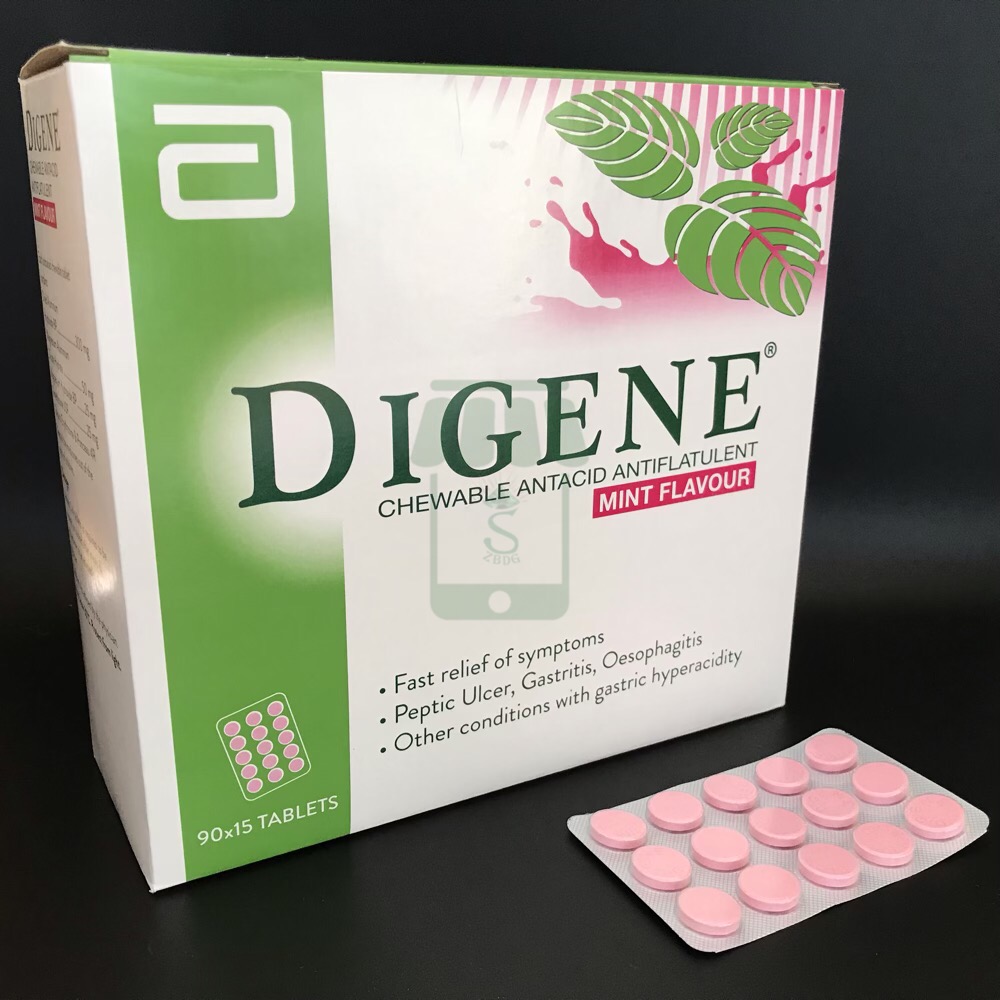How To Take Digene Tablets?
Hello Guys! Today we are with an amazing and informative article, In this article, we will provide you with a comprehensive guide on how to take Digene tablets, this article will clear all misunderstandings regarding Digene tablets, usage of Digene tablets, functions of Digene tablets, and many more.
Digestive discomfort can disrupt our daily lives and leave us feeling uncomfortable. One common mainly used medicine for such issues is this tablet. These antacids can provide relief from symptoms like heartburn, acidity, and indigestion. However, it’s important to know how to take Digene tablets correctly to ensure their effectiveness
These tablets can provide fast relief from digestive discomfort, but it’s crucial to use them correctly to ensure their effectiveness and safety. Taking care of your digestive health involves a combination of medication and lifestyle adjustments. By following the guidelines in this comprehensive guide, you can effectively manage digestive discomfort with Digene tablets and enjoy a more comfortable and symptom-free life, so the the article carefully so you get clear information about how to take Digene tablets.
What is Digene Tablet?
Digene is a popular antacid and anti-flatulent medication. It is often used to alleviate symptoms of acid indigestion, heartburn, and gas. The active ingredients in Digene tablets are calcium carbonate, magnesium hydroxide, and simethicone. Calcium carbonate and magnesium hydroxide work together to neutralize stomach acid, while simethicone helps to relieve gas and bloating.
How To Take Digene Tablets:
Read the label carefully:
Before taking any medication, it’s crucial to read the label carefully. Pay attention to dosage instructions, warnings, and any special precautions or contraindications. If you have any doubts regarding the usage and functions of the Digene tablet consult a healthcare professional.
Dosage:
The typical dosage for Digene tablets is 1-2 tablets after meals and at bedtime or as directed by your doctor. Moreover, the dosage may vary depending on your symptoms and your healthcare provider’s recommendations.
Swallow All:
These tablets should be swallowed whole with a glass of water. Do not crush or chew them unless directed otherwise by your doctor.
Timing :
It’s best to take Digene tablets after meals or when you experience discomfort. This allows the medication to work when your stomach is producing excess acid.
Do not exceed the recommended dosage:
Taking more Digene tablets than recommended will not provide faster relief and may lead to unwanted side effects. Stick to the recommended dosage.
Interactions of Digene Tablets:
Inform your healthcare provider or doctor of any other medications you are taking. Some drugs may interact with Digene, so it’s essential to avoid potential drug interactions.
As Digene tablets can reduce the absorption of certain antibiotics like tetracycline or fluoroquinolones. To prevent this interaction, it’s advisable to take these antibiotics a few hours before or after taking Digene.
Iron Supplements:
If you take iron supplements for anemia, Digene can interfere with the absorption of iron. Moreover, To maximize iron absorption, it is best to take iron supplements separately from Digene, usually with a time gap of a couple of hours.
Continuous dosage:
Do not use Digene tablets continuously for extended periods without consulting a healthcare professional. If your symptoms persist, it’s essential to seek medical advice to rule out underlying conditions.
Potential side effects of Digene Tablets:
While Digene is generally well-tolerated, some individuals may experience side effects such as constipation, diarrhea, or upset stomach. If you encounter severe or persistent side effects, contact your healthcare provider immediately.
Common side effects:
Constipation:
This can occur due to the calcium carbonate component in Digene. If constipation becomes a problem, consult your healthcare provider for guidance.
Diarrhea:
Some individuals may experience loose stools as a side effect. Staying well-hydrated can help manage this symptom.
Upset Stomach:
Mild stomach discomfort may occur in some cases. Taking Digene with food or after a meal can help alleviate this.
Allergic Reactions Of Digene Tablets:
Digene allergic reactions may occur, however, they are unusual. Rash, itching, swelling, extremely feeling dizzy, and breathing difficulties can all be symptoms of an allergic reaction. If you face any of the given symptoms then please visit your doctor or get medical help.
Storage of Digene Tablets:
Keep Digene tablets in their original packaging, keeping them away from direct sunlight, and moisture, and out of reach of children.
More About How To Take Digene Tablets:
In addition to Digene tablets, consider incorporating dietary and lifestyle changes to improve your digestive health. Avoid trigger foods, adopt smaller, more frequent meals, and maintain a healthy weight. And remember, Digene is a short-term solution for relief. If your digestive symptoms persist or worsen, consult your healthcare provider for further evaluation and tailored treatment.
Digene tablets are a valuable tool in managing common digestive discomforts. Proper use, along with lifestyle adjustments, can lead to improved digestive health, allowing you to enjoy a more comfortable and symptom-free life. Always prioritize your well-being, and when in doubt, consult a healthcare professional for personalized guidance on managing your digestive concerns.
While Digene is generally well-tolerated, it’s essential to be aware of potential side effects, which can include constipation, diarrhea, or an upset stomach. Monitoring your body’s response to Digene can help manage these side effects effectively.
To take a Digene tablet, start by reading the label on the packaging for specific dosage instructions. Typically, you want to dissolve the tablet in your mouth or chew it before swallowing. This antacid medication helps relieve symptoms of indigestion, heartburn, and acidity. Remember to follow the recommended dosage and consult a healthcare professional if you have any concerns or questions about its usage.
Conclusion:
In conclusion, the proper use of Digene tablets is essential for finding relief from common digestive discomforts like heartburn, acidity, and indigestion. By following the guidelines outlined in this comprehensive guide, you can ensure the safe and effective use of this over-the-counter medication.
It all begins with understanding what Digene is and how it works. Digene contains a combination of active ingredients, including calcium carbonate, magnesium hydroxide, and simethicone. Furthermore, these components work together to neutralize stomach acid and alleviate symptoms of gas and bloating. Knowing the composition of Digene helps you appreciate its role in promoting digestive comfort.
Dosage and timing are critical aspects of taking Digene tablets. The recommended dosage typically involves taking 1-2 tablets after meals and at bedtime or as advised by your healthcare provider. Timing matters, as taking Digene after meals when your stomach produces excess acid is most effective. Importantly, avoid exceeding the recommended dosage, as this won’t provide quicker relief and may lead to undesired side effects.
Understanding potential interactions with other medications and consulting your healthcare provider if you are pregnant, nursing, or have underlying health conditions are key safety measures. Storage is also crucial; keeping these tablets in their original packaging, away from moisture and sunlight, ensures their potency.







